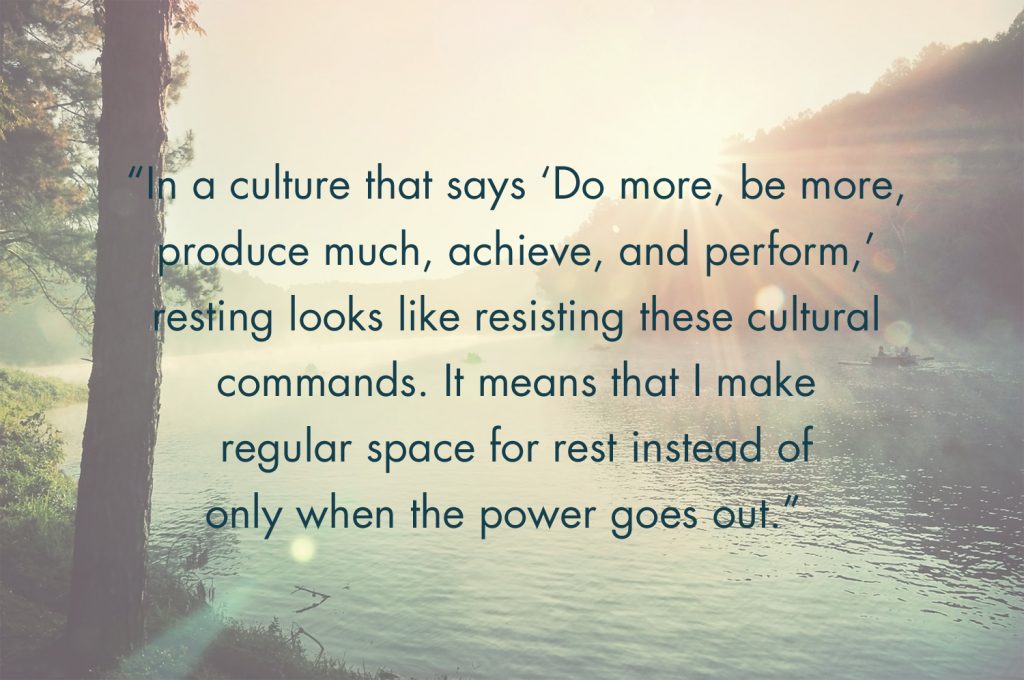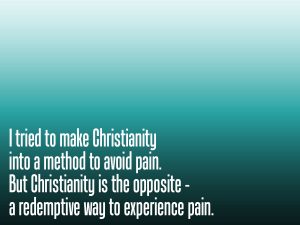Made to Rest

It was pitch black and eerily quiet with only intermittent swishes of cars whizzing by. Getting home on a summer evening after 8:30 when the power is out means that you can hardly see your hand in front of you. My imagination, or a kind way to say “anxiety,” took off and I envisioned a scary kind of “hide and seek” with invaders hiding in corners of the house, not waiting to be found but waiting to find me. After lighting some candles and checking all the corners, I was able to feel safe, assured that I was the only one in the house.
I had planned to do a couple of things for the remainder of the evening, but with no power, my options were narrowed. The quiet was especially quiet with no background music, no hum of air conditioning or a fan, no TV, and roommates who were out of town.
My soul yearns for this kind of quiet often, but now that it was here, it felt foreign and strange. No power felt like perfect permission to unplug, even to conserve my battery on my phone, and yet, I could not rest. I was restless. Like a wound-up toy that would not unwind, I recalled the quote by Saint Augustine, “Our hearts are restless unless they rest in God.”
This night, the power outage made me rest, and I also realized my other Power made me rest. By design, the Lord made me to work and to rest. He models this for us at the beginning of time. In this, resting in Him involves restraint. In a culture that says “Do more, be more, produce much, achieve, and perform,” resting looks like resisting these cultural commands. It means that I make regular space for rest instead of only when the power goes out. It means that I surrender and sober up, realizing who is ultimately in charge. Resting in the Lord means I trust Him above myself. To do that, I refrain from an adrenaline-fueled fight against stress and anxiety in my own strength. With slowing more often and resting more regularly, my body will not oppose rest’s foreign presence when it presents itself. Rather, it will be a familiar presence that comforts, soothes, and sustains me.
 Mollie Johnston is a Counselor for The Barnabas Center. She has her Bachelor of Arts from the University of Tennessee where she majored in Spanish as well as her Master of Arts in Christian Counseling from Gordon-Conwell Theological Seminary. She is especially passionate about helping individuals who are working through grief, doubts, trauma, relationships, anxiety, depression, self-esteem/identity issues, seasons of loneliness, family of origin issues, and divorce.
Mollie Johnston is a Counselor for The Barnabas Center. She has her Bachelor of Arts from the University of Tennessee where she majored in Spanish as well as her Master of Arts in Christian Counseling from Gordon-Conwell Theological Seminary. She is especially passionate about helping individuals who are working through grief, doubts, trauma, relationships, anxiety, depression, self-esteem/identity issues, seasons of loneliness, family of origin issues, and divorce.







